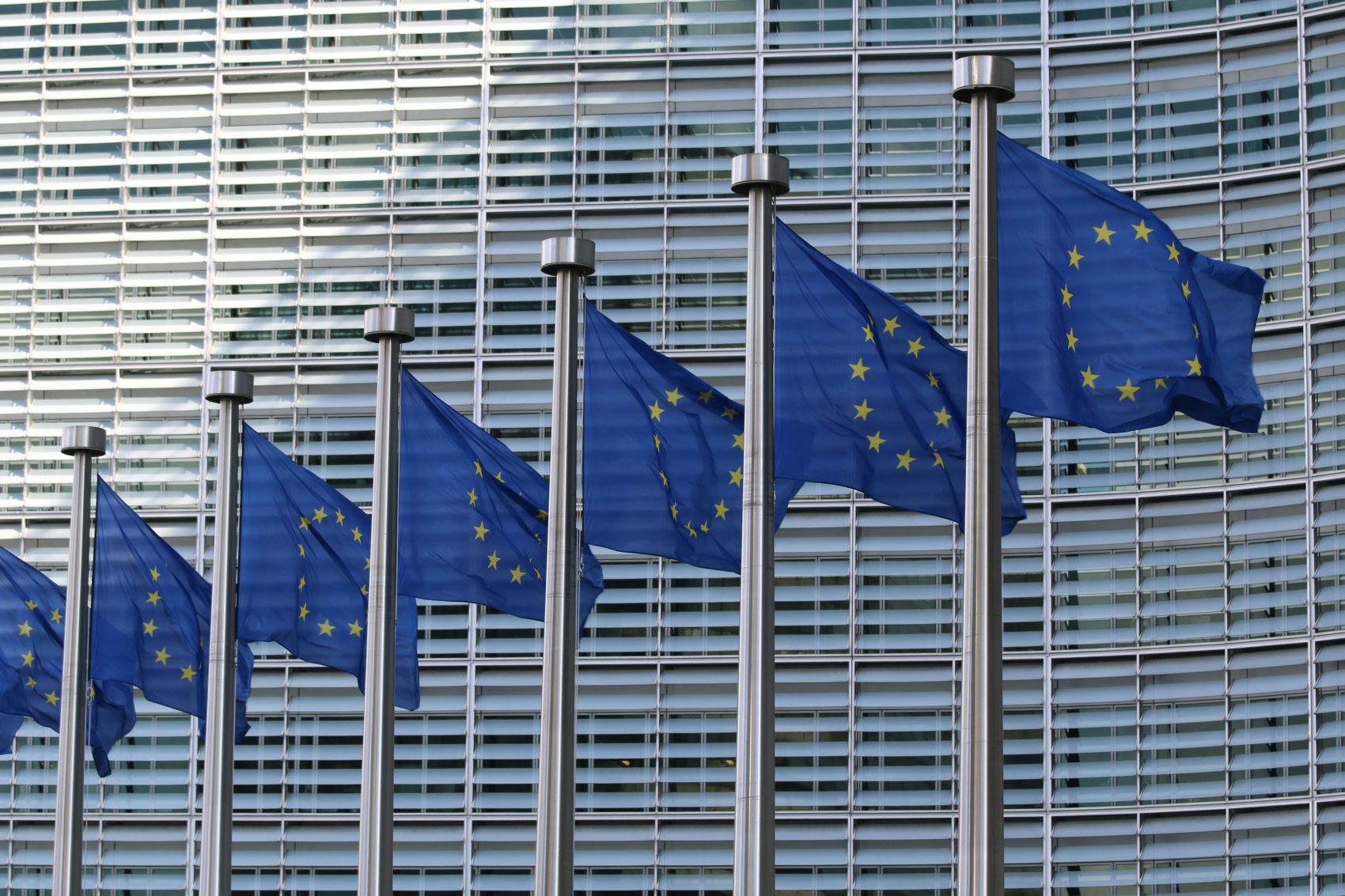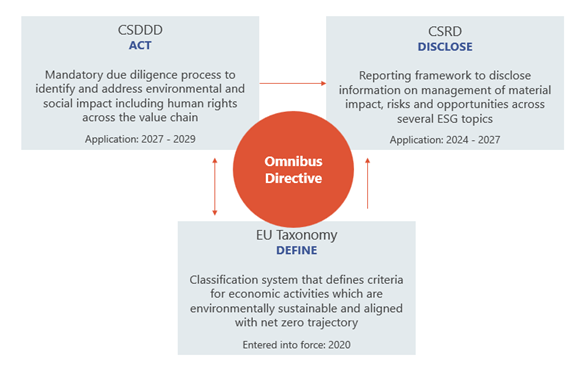Goodbye overlap, hello impact: simplifying ESG disclosure rules
The European Commission’s Omnibus Directive, is set to unify the EU’s cornerstone sustainability regulations, promises to cut through the noise and bring much-needed clarity. Read on to explore what this bold move means for businesses already grappling with compliance and how Steward Redqueen can help you to stay ahead.
The European Commission’s new approach to ESG regulation
The European Commission (EC) is aiming to eliminate unnecessary complexity in sustainability regulation and bring clarity to businesses navigating environmental, social, and governance (ESG) requirements. With the Omnibus proposal, set for announcement on 26 February, the EC plans to integrate three cornerstone regulations— the Corporate Sustainability Reporting Directive (CSRD), the Corporate Sustainability Due Diligence Directive (CSDDD), and the EU Taxonomy—into a unified framework. This bold move isn’t just a bureaucratic reshuffle; it’s a step towards achieving the ambitious European Green Deal goal of a climate-neutral EU by 2050.
Each regulation currently serves a unique purpose: the EU Taxonomy defines sustainable activities, the CSRD ensures transparent corporate sustainability reporting, and the CSDDD enforces accountability in addressing human rights and environmental risks across supply chains. Together, these regulations promote sustainable business practices, climate action, and responsible investments. But as businesses know all too well, the overlaps between them and the degree of detail have often made compliance a daunting task.
With the Omnibus Directive, the EC aims to simplify reporting obligations, cut through administrative red tape, and create a cohesive regulatory framework. The proposal resonates strongly with calls from business leaders, including recommendations in Draghi’s The Future of European Competitiveness report, which stressed the importance of reducing bureaucratic hurdles to stimulate innovation and growth. As highlighted in the EC’s Competitiveness Compass [link], the Commission has taken Draghi’s recommendations to heart and formulated a vision built on three key pillars: fostering innovation, accelerating decarbonisation and clean production, and reducing dependencies while increasing security. These pillars are critical drivers of industrial transformation, ensuring Europe remains competitive in green technologies, sustainable manufacturing, and energy independence. In this context, streamlining sustainability regulations is a vital tool to boost competitiveness, resilience, and sustainability across the European economy.
Responsible impact as a no-regret approach for businesses
While the promise of streamlined regulations is welcome news, the journey isn’t without its challenges. Many companies have already invested heavily in adapting to the implemented frameworks. While streamlining frameworks aims to reduce administrative burdens, any perceived relaxation of standards could lead to ambiguity about long-term expectations. Companies may hesitate to make sustainability commitments, fearing that shifting requirements could render their efforts obsolete or misaligned.
However, at this critical juncture, we believe that businesses need to stay committed to integrating sustainability into their strategies and ensuring accountability across their value chains. More than just a regulatory requirement, sustainability is a business imperative—one that strengthens investor confidence and unlocks new market opportunities in green technology, clean production, and sustainable finance. In this context, the Omnibus Directive has the potential to reinforce three key principles that will drive long-term resilience and competitiveness.
In the first place, companies need to embed environmental and social responsibility into their DNA. Sustainability is a strategic responsibility and not just about meeting regulatory requirements. Companies that treat sustainability as a strategic imperative not only build trust and resilience but also create long-term value for society. As the Competitiveness Compass highlights, the companies that embed sustainability at their core will be best positioned to future-proof the operations against risks such as climate change, resource scarcity and capitalize on Europe’s push for energy independence.
At the same time, companies must extend accountability across their value chain. From sourcing raw materials to delivering products to consumers, businesses will need to assess and mitigate ESG risks. By gaining visibility into increasing ESG risks and opportunities across their value chains, companies can enhance resilience, mitigate financial and operational risks, and strengthen long-term growth prospects. Robust due diligence demonstrates a commitment to responsible and transparent business practices while minimising supply chain vulnerabilities.
Finally, targeted and data-driven impact strategies require robust and reliable data. These data enable companies to set realistic targets, track progress, identify gaps, and make evidence-based improvements, ensuring that impact targets move beyond aspiration to tangible results. The Omnibus Directive will be pivotal in bringing clarity and reducing complexity around data requirements. This will enable businesses to align more effectively with data needs of investors to assess and support impactful and sustainable investment decisions and ultimately contribute to the objectives of the European Green Deal.
Speaking from experience
At Steward Redqueen, we specialise in helping businesses navigate the complexities of sustainability regulations while integrating impactful strategies into their core operations. Our expertise spans impact measurement, ESG risk management, and regulatory compliance, ensuring that companies not only meet evolving requirements but also leverage sustainability as a driver of long-term value. By combining regulatory insights with a strategic approach, we help businesses develop net zero strategies and decarbonisation pathways, mitigate ESG risks, and manage their impact—ensuring they remain both compliant and competitive in a rapidly evolving landscape.

















